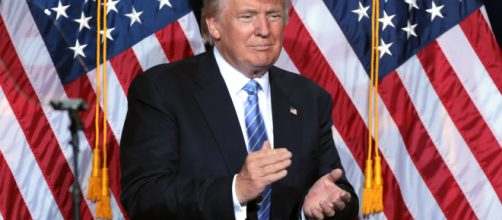The White House reported Tuesday that President Donald Trump will not be attending the Summit of the Americas in Peru, citing the need to monitor the US response to a suspected chemical attack that occurred in Syria. White House Press Secretary Sarah Huckabee Sanders stated that, ““The president will remain in the United States to oversee the American response to Syria and to monitor developments around the world,” Sanders also stated that Vice President Pence would be traveling in the president’s stead. President Trump vowed Monday that the US would be “making some major decisions in the next 24 to 48 hours.” (Washington Post)
The statement seemed to have taken some officials by surprise – Mr.
Trump’s top economic advisor Larry Kudlow had been speaking to conservative radio host Hugh Hewitt about his plans to travel with Mr. Trump to the summit, seemingly unaware of the new plans. The change comes amid a tumultuous week for the White House – an FBI raid Monday targeted the Manhattan office and hotel room of Michael Cohen, the president’s personal lawyer. Mr. Trump called the raid a “witch hunt,” a “disgraceful situation,” and an “attack on our country in a true sense.” The raid was separate from special counsel Robert Mueller’s investigation. (New York Times, Washington Post).
First time visit
The trip to Peru and following visit to Colombia would have been the president’s first visit to Latin America, and had already been pulled back from five days to three.
Mr. Trump had planned to use the summit to seek consensus on how to handle the crisis in Venezuela, and press for better trade deals with countries in the region. As reported by The Telegraph, Mr. Pence has previously served as Mr. Trump’s envoy to the region and met with Colombian President Juan Manuel Santos. Colombia is an important US ally in the fight against the drug trade.
Many Latin American leaders had hoped to have their first face-to-face encounter with the US President. The last summit, held in April of 2015, was attended by former US President Barrack Obama, who stated, “The days in which our agenda in this hemisphere presumed that the United States could meddle with impunity, those days are past…As you work for change, the United States will stand up alongside you every step of the way." Mr.
Trump’s America First agenda, however, was expected to be met with less enthusiasm by attendees.
Trump's Syrian strategy
When speaking on Monday, Trump stated that "nothing is off the table," in dealing with Syria following the chemical attack. The amount of parties involved in the Syrian conflict, both on the opposition and governmental sides, make retaliation against a chemical attack incredibly complicated. While it is not outside the realm of possibility, the use of ground troops is unlikely. Currently, the US has approximately 2,000 ground troops in Syria. In a meeting with his national security team last week, Mr. Trump agreed to keep US troops in Syria for an undetermined amount of time in order to defeat ISIS, but emphasized his desire to end US involvement in the conflict as soon as possible, according to a senior administration official (NBC).
The official stated, ""He wasn’t thrilled about it, to say the least," and that, "The president made his displeasure clear about any kind of long-term presence in Syria," (NBC).
Given the complexity of the crisis, only time will tell just how long "long-term" will be. In the meantime, the president will also have to answer to the countries slighted by his absence at the Latin American conference, and be prepared for whatever comes from the FBI raid.


